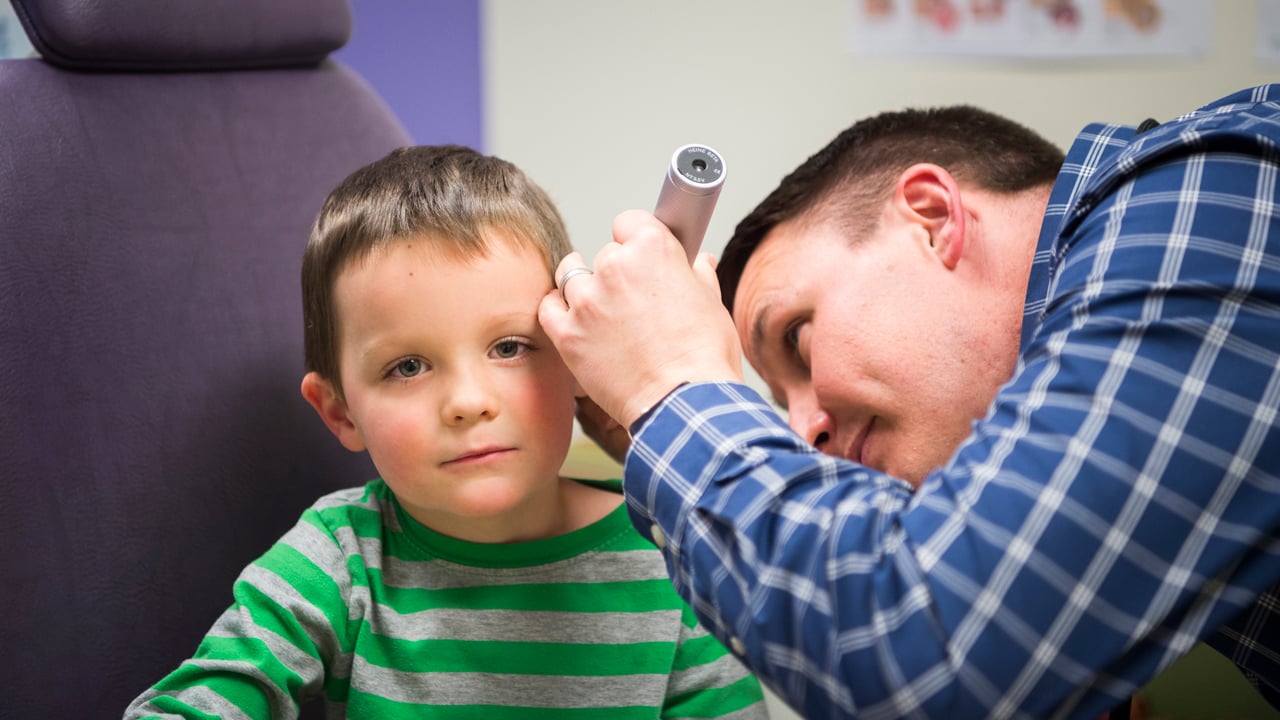- Doctors & Departments
-
Conditions & Advice
- Overview
- Conditions and Symptoms
- Symptom Checker
- Parent Resources
- The Connection Journey
- Calm A Crying Baby
- Sports Articles
- Dosage Tables
- Baby Guide
-
Your Visit
- Overview
- Prepare for Your Visit
- Your Overnight Stay
- Send a Cheer Card
- Family and Patient Resources
- Patient Cost Estimate
- Insurance and Financial Resources
- Online Bill Pay
- Medical Records
- Policies and Procedures
- We Ask Because We Care
Click to find the locations nearest youFind locations by region
See all locations -
Community
- Overview
- Addressing the Youth Mental Health Crisis
- Calendar of Events
- Child Health Advocacy
- Community Health
- Community Partners
- Corporate Relations
- Global Health
- Patient Advocacy
- Patient Stories
- Pediatric Affiliations
- Support Children’s Colorado
- Specialty Outreach Clinics
Your Support Matters
Upcoming Events
Colorado Hospitals Substance Exposed Newborn Quality Improvement Collaborative CHoSEN Conference (Hybrid)
Monday, April 29, 2024The CHoSEN Collaborative is an effort to increase consistency in...
-
Research & Innovation
- Overview
- Pediatric Clinical Trials
- Q: Pediatric Health Advances
- Discoveries and Milestones
- Training and Internships
- Academic Affiliation
- Investigator Resources
- Funding Opportunities
- Center For Innovation
- Support Our Research
- Research Areas

It starts with a Q:
For the latest cutting-edge research, innovative collaborations and remarkable discoveries in child health, read stories from across all our areas of study in Q: Advances and Answers in Pediatric Health.


A Guide to ENT Surgery for Kids: Ear Tubes, Tonsillectomy and Adenoidectomy

Pediatric ear, nose and throat specialists, also known as ENTs or otolaryngologists, specialize in diagnosing and treating head and neck conditions. They support children with recurring ear infections and sore throats, but they also help with issues related to swallowing, hearing impairment, balance disorders and more.
If your child is struggling with ear or throat pain, or they’ve recently been referred to an ENT by your primary care provider, you probably have a lot of questions about ENT surgery, medication, alternative treatments and the road ahead. Our experts share important information about what to expect from an ENT specialist and when surgery might be an option.
Why children should see a pediatric ear, nose and throat specialist
If you have concerns about ENT care or surgery for your child, it’s important to discuss your questions with your child's pediatrician first. If they think further evaluation is needed, they will refer you to a pediatric ENT specialist.
Seeing a pediatric ENT is important because ENT care for kids isn't the same as ENT care for adults.
Dan Nicklas, MD, a pediatrician at Children's Hospital Colorado's Child Health Clinic, explains that kids’ anatomy requires unique care. For one, children’s ears are different. Their eustachian tubes, which connect the middle ear to the back of the throat, are shorter and less angled than adults. This makes it harder for fluid to drain from the ear, which results in a higher rate of infections.
“There's a completely different level of expertise among providers in pediatrics,” Dr. Nicklas says. “Also, kids’ illnesses are a bit different. It changes how we think about kids getting infections, why they get infections and what's going on with them.”
Additionally, a pediatric ENT specialist will have experience working with kids, which is especially important when your child has an earache or sore throat and isn’t feeling their best.
"A pediatric provider is more comfortable with kids, knowing how to do the exam and set the child at ease,” Dr. Nicklas says.
Do ENT doctors do surgery?
In addition to treating issues of the ear, nose and throat, ENTs are also trained in surgeries like tonsillectomies, in which the tonsils are removed.
But just because you’ve been referred to an ENT doesn’t mean your child will need surgery, says Kenny Chan, MD, a staff otolaryngologist at Children’s Colorado.
"Our approach is not simply to do surgery but to provide an opinion on the best treatment for the condition, whether that be surgery or medicine,” Dr. Chan says. "Or it might just be watchful waiting."
In the process of making this decision, Dr. Chan might look at the patient's history with the condition, the severity of the illness and its impact on the patient's life. He also might evaluate a child's hearing or meet with the family and ask questions. Most of the time, surgery is not the first step.
"We work closely with our colleagues in ENT," Dr. Nicklas says. "So, if a kid is snoring, say, because of enlarged adenoids, we might try an initial intervention like nasal steroids, since if we sent them to ENT that's what they'd do. We try to coordinate to lessen parents' burden of care by minimizing visits."
ENT care for kids
Ear infections, sore throats and sinusitis, or sinus infections, are common in childhood. However, it’s important to understand how often these infections should occur, when surgery becomes necessary and what you should watch for as a parent.
How many ear infections and sore throats are normal in childhood?
How many ear infections does a child need to have before surgery becomes an option? Turns out the answer is pretty straightforward.
"Kids who have had three ear infections in six months or four in a year meet criteria for seeing an ear, nose and throat specialist," Dr. Nicklas says.
The highest ear infection rates occur among children between 6 months of age and 2 years old.
“It's less likely to see frequent infections in kids older than 2,” Dr. Nicklas says.
As for sore throats, Dr. Chan recommends watching out for seven or more severe occasions per year, or five consecutive severe sore throats in two years.
"A severe sore throat is accompanied by fever and malaise and causes a child to miss school,” Dr. Chan says.
Do ear infections resolve on their own?
While many parents want to spring into action to treat their child’s illness, most ear infections will resolve on their own. “If you think there's an ear infection or even if one's been diagnosed early in the illness, you can watch it for three days or so,” Dr. Nicklas says.
That’s because the long-term risks associated with ear infections are quite small.
"One risk is that the infection could spread to the other ear,” Dr. Nicklas explains. “Ear perforation can also occur in either ear regardless of spread. That’s where the eardrum perforates, and then the pus basically comes out the ear.”
Even in the instance of ear perforation, which is when there’s a hole or tear in the tissue separating the ear canal from the middle ear, the ear tends to heal itself most of the time. In rare instances or in recurrent infections, ear perforation can diminish hearing over time due to scarring of the tympanic membrane, also known as the eardrum.
Are there at-home treatments for ear infections or sore throats?
If your child’s ear infection isn’t severe or recurring, there are a few things you can do at home as you watch and wait for the infection to resolve.
“See if it goes away by itself, and treat with ibuprofen or acetaminophen for pain if necessary,” Dr. Nicklas says.
A hot or cold compress over the infected ear can also help with pain relief and pressure.
For sore throats, drinking lots of fluids, gargling saltwater and taking pain relievers can alleviate discomfort. Humidifiers can also ease sore throats and stuffy noses, as they moisten the airways for easier breathing. However, humidifiers must be cleaned and dried regularly — at least once a week — to be used safely.
“Neti pots can be a helpful remedy for nose, nasal and sinus congestion, so that may offer them some relief," Dr. Nicklas says.
When using a neti pot, be sure to only use distilled water or water that has been boiled, as this will make sure the water is safe to use.
If an ear infection is accompanied by a high fever, severe pain, bilateral ear infections or ear drainage under the age of 6 months, however, a provider may prescribe antibiotics to get the infection under control.
How do I know if my child has a sinus infection?
Sinusitis, also known as a sinus infection, can mimic many symptoms of the common cold. However, if the cold-like symptoms are accompanied by a fever, yellow or green nasal discharge, a cough or headache, your child may have an infection. The type of cough your child has can clue you into their illness, too.
Sinusitis in children may be treated with saline washes or rinses. In severe cases, where the infection lasts longer than 10 days, providers may prescribe antibiotics.
It is also helpful to brush up on the differences between a cold, flu and COVID-19, among other infections affecting kids.
ENT surgeries for kids
Parents and caregivers should refer to their primary care provider and ENT specialist to determine if ENT surgery is the right course of action for their child.
When is ear tube surgery necessary?
If your child has recurring ear infections despite antibiotics, it might be time to consider seeing a pediatric ENT specialist about ear tube surgery.
Ear tubes are tiny cylinders inserted into the middle ear drum to drain fluid and reduce infections. Children’s ear tube surgery is relatively quick and very common. Tubes usually stay in for a year to a year and a half, then fall out on their own. However, they can also be removed by an ENT.
Pediatric tonsillectomy and adenoidectomy
An ENT may recommend a tonsillectomy or adenoidectomy for several reasons. Tonsil removal helps with frequent sore throats, severe or recurrent bouts of strep throat, and trouble breathing.
Adenoidectomy removal is often performed to reduce ear infections. Adenoids can spread infections into the middle ear, which obstructs hearing and can lead to acute ear infections that cause pain. Enlarged adenoids can also cause problems such as sore throats, mouth breathing and snoring and obstructive sleep apnea — a condition where a child briefly stops breathing during sleep.
"Obstructive sleep apnea is a reason for an ENT referral,” Dr. Nicklas says. “We look at kids who are snoring — especially if the parents know that they stop breathing when they're snoring.”
If you know your child stops breathing during sleep, ask their primary care doctor if you need a referral to an ENT. If testing reveals obstructive sleep apnea, the child may be sent to an ENT specialist, who may then decide if they need a tonsillectomy, adenoidectomy or both.
Additional reasons to see an ENT about surgery
Another condition that may require ENT surgery is septal deviation — severe displacement of the wall between the nasal passages. A deviated septum can make it hard to breathe normally and can also lead to sleep apnea.
Your child might also be referred to an ENT if they have a neck mass due to inflammatory or infectious causes, an infected lymph node or a cancerous growth on the neck. Thyroid cancer is also being diagnosed at a higher rate among teenagers, which causes a tumor or mass in the thyroid gland of the throat.
Whether your child has an ear infection, a common cold or severe strep throat, our team of ENT specialists is here to support you every step of the way.



 720-777-0123
720-777-0123






